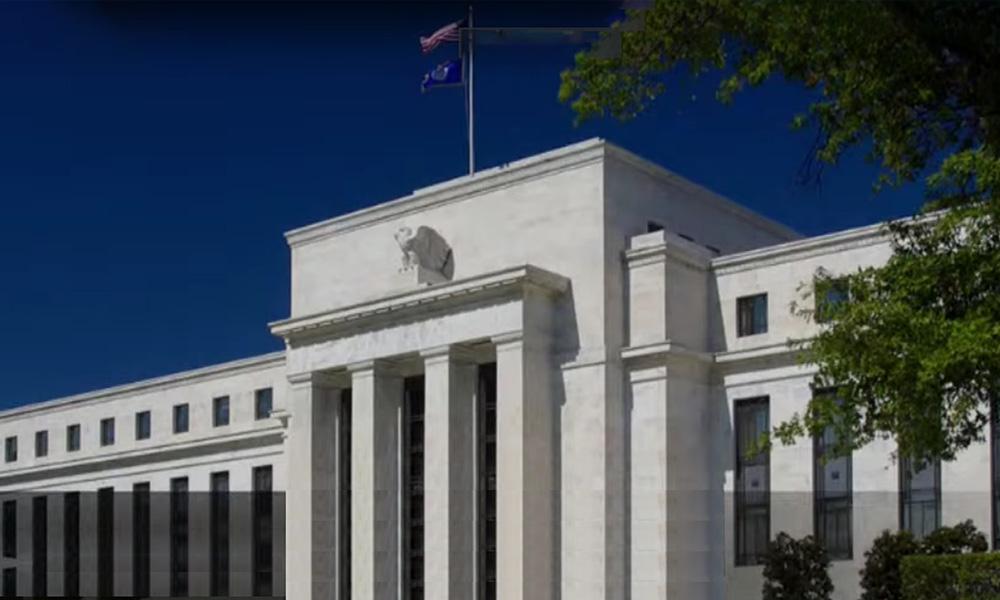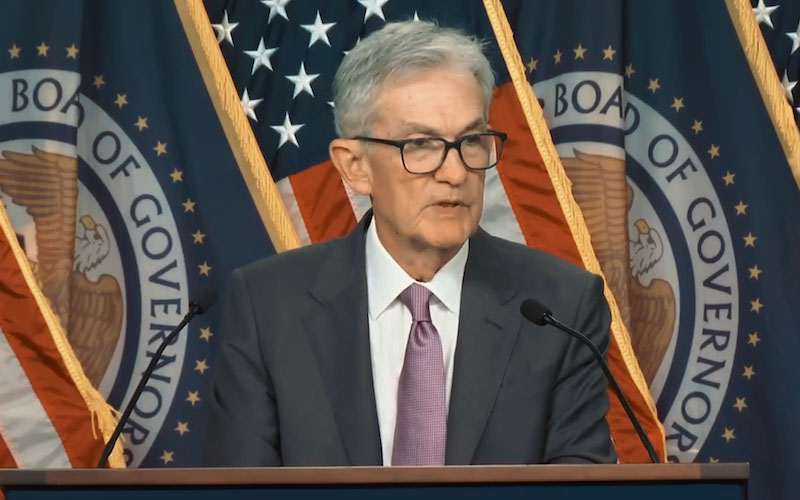Federal Reserve Board Governor Waller made a major statement: A 25 basis point interest rate cut in July is imperative, and economic risks are increasing!
2025-07-18 09:54:50

Economic slowdown and employment risks: urgent reasons for rate cuts
In a speech prepared for the Money Marketeers event at New York University, Waller made it clear that the current US economy is facing a situation where growth momentum is significantly slowing. He mentioned that both hard data (such as indicators of economic activity) and soft data (such as market sentiment and expectations) consistently show that economic growth is weakening. More worryingly, risks in the labor market are increasing, which directly threatens the Fed's dual mission of controlling inflation and promoting full employment. Waller emphasized: "The economy is still growing, but its momentum has slowed significantly, and the risks facing the Fed's employment mission have increased." This judgment provides a solid basis for the July rate cut.
Waller further analyzed that the current economic data showed that the US job market was on the "edge of trouble". For example, some recent employment indicators showed signs of slowing recruitment and a slight increase in unemployment, which prompted the Federal Reserve to respond quickly to avoid further deterioration of the economy. He warned that if the Federal Reserve did not take action in July but postponed it until September or even later, it might cause the policy to "lag behind the situation", thereby exacerbating the risk of economic downturn. This forward-looking judgment highlights Waller's keen insight into the economic situation and provides important policy signals to the market.
Tariffs and inflation: One-off effects that shouldn’t be a cause for concern
When talking about the trade tariff issue that has attracted much attention recently, Waller showed a relatively optimistic attitude. He believes that even if the tariff policy implemented by the Trump administration leads to a short-term increase in prices, its boost to inflation is likely to be short-term and one-off, and will not cause sustained inflationary pressure. Waller specifically pointed out that even if the tariff rate reaches 10%, the overall impact on inflation will only be between 0.75% and 1%, which is far lower than the concerns of some market participants. This view contrasts with the cautious attitude of other officials within the Federal Reserve, showing that Waller has relatively underestimated the risk of inflation.
Waller further explained that the Fed can temporarily ignore the short-term disturbances caused by tariffs when formulating monetary policy, and should focus more on medium- and long-term economic trends, such as economic growth momentum and the health of the labor market. He said: "All evidence shows that the Fed can ignore the impact of tariffs and focus on other issues affecting the economy." This position shows that Waller prefers to focus policy on supporting economic growth and employment rather than being constrained by short-term inflation fluctuations.
Monetary policy turns to neutral: interest rate cut is only the first step
An important highlight of Waller's speech is that he not only supports the 25 basis point rate cut in July, but also points out the direction for the future monetary policy path. He made it clear that the current Fed's interest rate target (4.25%-4.5%) is much higher than the long-term neutral interest rate level (about 3%) that officials believe. This means that the Fed's monetary policy stance is still tight and is no longer suitable for the current economic environment of slowing economic growth. Therefore, the July rate cut is only a starting point, and further rate cuts may be needed in the future to gradually adjust the policy interest rate to a neutral level.
Waller pointed out: "If underlying inflation remains under control and expectations of future price increases remain under control amid slowing economic growth, I would support a further 25 basis point rate cut to bring monetary policy closer to neutrality." This statement conveys a clear policy signal: the Fed may continue to cut interest rates in the next few meetings to support the smooth operation of the economy. However, he also emphasized that if subsequent economic data show that further easing is not needed, the Fed may also choose to suspend interest rate cuts and maintain policy flexibility. This "data-driven" decision-making approach reflects the Fed's caution and balance in a complex economic environment.
The risk of missing the July window: why action is urgent
In his speech, Waller specifically warned that if the Fed does not take action to cut interest rates in July, it may lay hidden dangers in the future. He pointed out that if the trend of economic weakness accelerates, delaying the rate cut may cause the Fed to be caught off guard in responding to the economic downturn. He said figuratively: "If we wait until September or even later this year to act, we will face the risk of falling behind the situation." This warning not only highlights Waller's sense of urgency about the current economic situation, but also provides the market with an important time window expectation.
Waller's position is somewhat different from the general expectations of the financial market. At present, the market generally expects the Fed to start cutting interest rates in September, and the forecast of the June FOMC meeting also shows that there may be two rate cuts this year. However, Waller and another Fed official have become the few voices that clearly support the July rate cut. This disagreement shows that there are still disputes within the Fed on the judgment of the economic situation and the grasp of the policy rhythm, and Waller's tough attitude undoubtedly increases the possibility of a July rate cut.
Political neutrality and future prospects: Waller's role and influence
It is worth noting that Waller emphasized in his speech that his interest rate cut proposal "has nothing to do with politics." As an important figure regarded by the outside world as a potential successor to Fed Chairman Powell, Waller's statement is intended to dispel market speculation that his policy stance may be affected by political factors. In recent years, the Fed's monetary policy has been publicly criticized many times by the Trump administration, who believes that the Fed should cut interest rates sharply to stimulate the economy. Waller's clarification shows that he hopes to promote policy discussions with a professional and independent attitude and avoid being involved in political disputes.
In addition, Waller's speech comes at the last stage before the Fed's policymakers enter the "quiet period". The July 29-30 FOMC meeting is approaching, and as one of the last officials to speak publicly, Waller's views will undoubtedly have an important impact on market expectations and the outcome of the meeting. His clear support for rate cuts may provide support to other officials who tend to be accommodative and push the Fed to take action in July.
Summary: July rate cut signal and economic outlook
Overall, Waller's latest speech provides strong support for the Fed's July rate cut. His analysis is based on deep insights into the economic slowdown, increased employment risks, and limited impact of tariffs, demonstrating the Fed's policy flexibility in a complex economic environment. Waller not only provided a reason for the 25 basis point rate cut in July, but also pointed out the direction for the gradual easing of monetary policy in the future. However, he also emphasized the flexibility of the policy, pointing out that subsequent actions will be highly dependent on the performance of economic data.
For the financial market, Waller's speech is undoubtedly a heavy signal, which may boost market expectations for a rate cut in July. At the same time, his optimism and underestimation of the impact of tariffs also provide investors with a new perspective. At a time when the global economy is full of uncertainty, Waller's statement provides important guidance for the Fed's policy path and adds more possibilities for the future direction of the US economy. The FOMC meeting on July 29-30 will be a key node to determine whether the Fed will take the first step in the rate cut cycle as Waller wishes.
- Risk Warning and Disclaimer
- The market involves risk, and trading may not be suitable for all investors. This article is for reference only and does not constitute personal investment advice, nor does it take into account certain users’ specific investment objectives, financial situation, or other needs. Any investment decisions made based on this information are at your own risk.










